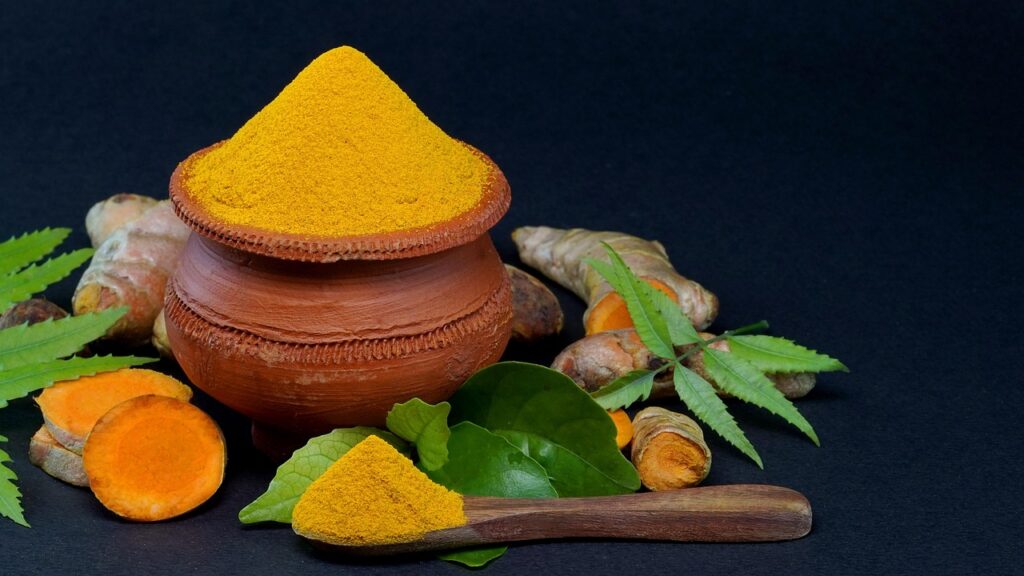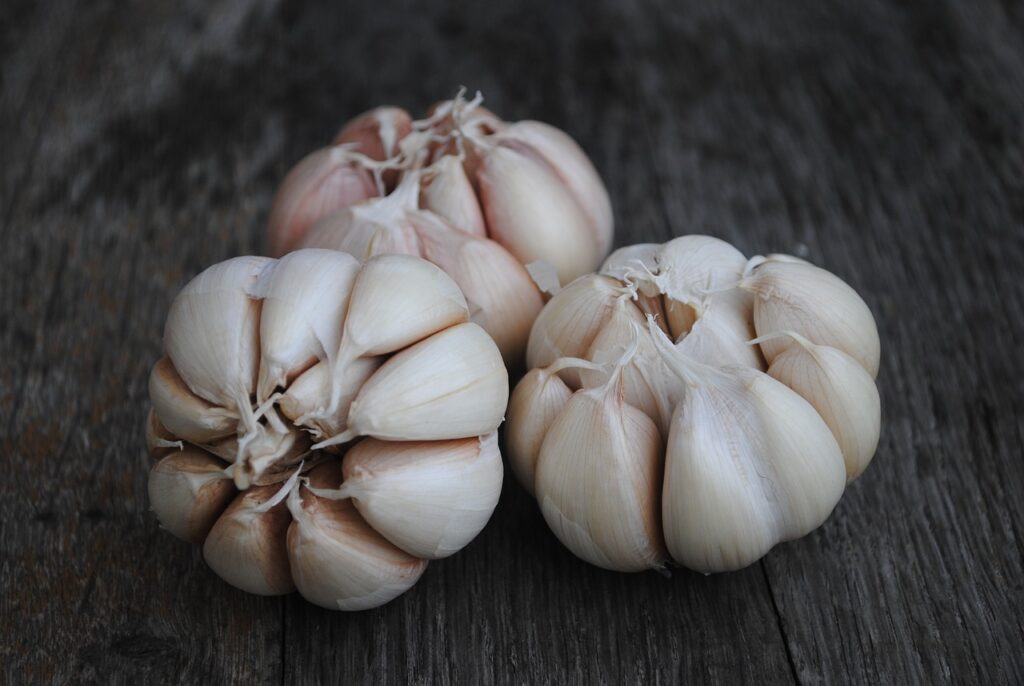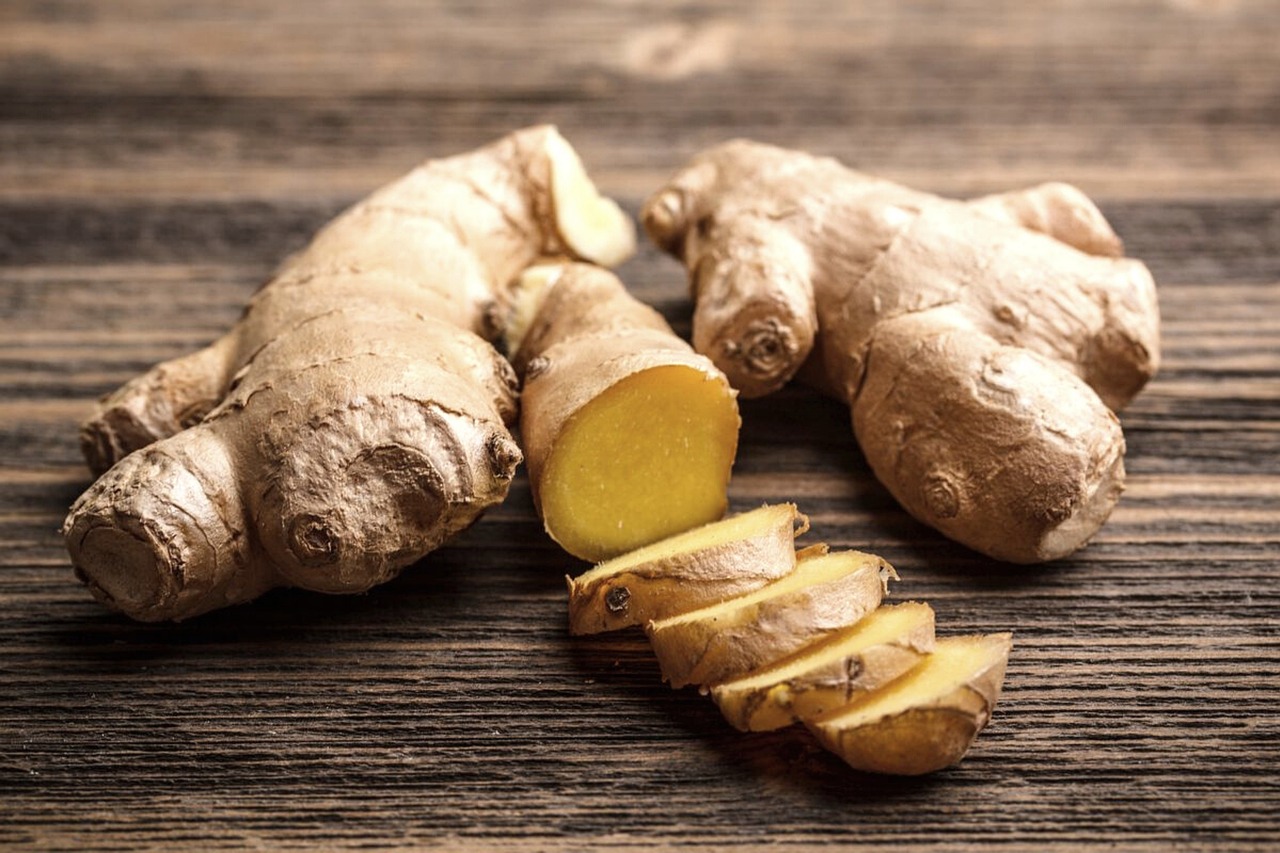For centuries, herbs have been used as natural remedies to treat a variety of health issues. With the increasing interest in alternative medicine, understanding the benefits of herbal remedies can help you incorporate these natural solutions into your health routine. Here, we explore the top 6 herbal remedies for common ailments, backed by research and traditional practices.
Table of Contents
1. Ginger for Nausea and Digestion

Ginger (Zingiber officinale) has been recognized as an effective natural remedy for nausea and digestive issues for centuries. Here are key findings from recent studies and guidelines:
Uses for Nausea
- Pregnancy-Related Nausea: Ginger has shown significant benefits in reducing nausea and vomiting during early pregnancy. Studies suggest doses of 250–1000 mg per day, divided into smaller doses, are effective. The American College of Obstetricians and Gynecologists (ACOG) supports its use as a non-pharmacologic option, though evidence is limited [1] [3].
- Postoperative Nausea: Mixed results have been observed. Some research indicates that ginger may reduce nausea after surgery, but its effectiveness varies based on the type and severity of symptoms [2].
- Motion Sickness: Evidence is inconclusive. While ginger is popularly used for motion sickness, studies have not consistently proven its effectiveness [1].
- Chemotherapy-Induced Nausea: When combined with anti-nausea medications, ginger can moderately reduce symptoms during chemotherapy, but its effects alone are limited [1].
Digestive Health
- Indigestion Relief: Ginger stimulates digestive processes and may alleviate symptoms of bloating and gas.
- Gastrointestinal Motility: It supports the movement of food through the digestive tract, which can relieve discomfort and aid digestion [1] [2].
Dosage and Safety
- Recommended Dosages:
- Nausea: 250–1000 mg daily, depending on the condition.
- Indigestion: Small doses taken with meals.
- Precautions:
- Avoid exceeding 4 g per day, including food sources.
- Consult a doctor before use during pregnancy, breastfeeding, or if you have conditions like gallstones, bleeding disorders, or take anticoagulants [2] [3].
Additional Information
- Ginger is available in various forms, including fresh root, capsules, and teas. Studies suggest fresh and powdered forms are equally effective for medicinal use [2] [3].
Research Sources
- National Center for Complementary and Integrative Health (NCCIH) [1]
- Mount Sinai – Ginger Information [2]
- American Academy of Family Physicians (AAFP) [3]
For detailed guidelines and further reading, consult the linked sources. Ginger’s natural properties make it a safe and effective option for many, but it’s essential to use it responsibly.
2. Turmeric for Inflammation

Turmeric, a spice derived from the root of the Curcuma longa plant, has been widely recognized for its anti-inflammatory properties, largely attributed to its active compound, curcumin. This compound has shown promise in alleviating symptoms of various inflammatory conditions such as arthritis, cardiovascular issues, and even neurodegenerative diseases like Alzheimer’s.
Key Benefits
- Anti-Inflammatory Effects: Curcumin inhibits inflammation pathways in the body, making it as effective as some nonsteroidal anti-inflammatory drugs (NSAIDs) for conditions like arthritis, though with fewer side effects. Studies have also noted its potential to reduce joint pain and stiffness [4] [5].
- Antioxidant Properties: Curcumin combats oxidative stress, which contributes to inflammation and chronic diseases such as heart disease and cancer. These properties might also improve recovery after physical exercise [6].
- Enhancement of Other Therapies: Curcumin is being explored as a complementary treatment to reduce chemotherapy side effects and potentially enhance its efficacy in cancer patients [5] [6].
Challenges in Use
- Low Bioavailability: Curcumin is poorly absorbed by the body and metabolized quickly. To improve absorption, it is often combined with black pepper extract (piperine) or other enhancers [5].
- Possible Side Effects: High doses of turmeric can cause gastrointestinal upset and interact with medications, such as blood thinners and diabetes drugs. Pregnant or breastfeeding women should avoid turmeric supplements without medical advice [6].
Recommendations
- Dosage: Moderate doses (up to 1,200 mg daily) are generally considered safe, but long-term use should be monitored by a healthcare professional. For better efficacy, supplements combining curcumin with absorption enhancers are advised [5] [6].
Turmeric’s potential in managing inflammation is promising, but further studies are needed to establish long-term effects and optimal dosing.
Research Sources
For more detailed information, you can explore:
- Mayo Clinic [4]
- UCLA Health [5]
- Mount Sinai [6]
3. Peppermint for Headaches and IBS

Peppermint has long been used for medicinal purposes, particularly in managing headaches and irritable bowel syndrome (IBS). Here’s a summary of its benefits based on recent research:
Peppermint for Headaches
- Tension Headaches: Topical application of peppermint oil has shown effectiveness in reducing symptoms of tension headaches. In clinical trials, it was as effective as acetaminophen for headache relief without reported side effects. The oil’s cooling and muscle-relaxing properties contribute to its benefits [7] [8].
- Mechanism: Peppermint oil helps increase blood flow and relax tight muscles, which alleviates headache discomfort [8].
Peppermint for IBS
- Symptom Relief: Studies have demonstrated that enteric-coated peppermint oil capsules significantly reduce IBS symptoms, such as abdominal pain, bloating, and spasms. These effects are attributed to its ability to relax smooth muscles in the gastrointestinal tract [7] [9].
- Efficacy: A meta-analysis found peppermint oil to be 2.7 times more effective than placebo in reducing IBS symptoms, although variability among studies highlights the need for further research [8].
Safety and Side Effects
- Generally, peppermint oil is considered safe when used appropriately. However, oral consumption may cause heartburn or nausea in some individuals. It is not recommended for infants, pregnant women, or those with acid reflux unless advised by a healthcare provider [7] [8].
Practical Use
- For headaches: Apply diluted peppermint oil to the temples or neck area.
- For IBS: Take enteric-coated peppermint oil capsules as directed to minimize side effects like heartburn [7] [8].
Research Sources
For more detailed information and clinical insights, you can refer to:
- National Center for Complementary and Integrative Health (NCCIH) [7]
- American Family Physician (AAFP) [8]
- National Institute of Diabetes and Digestive and Kidney Diseases (NIDDK) [9]
Peppermint oil remains a promising complementary treatment for these conditions, but consulting with a healthcare professional is advised to ensure safe and effective use.
4. Echinacea for Immune Support

Echinacea, a popular herbal remedy, is primarily used to support immune health and manage symptoms of upper respiratory infections (URIs) like the common cold. It contains active compounds such as alkylamides, polysaccharides, and cichoric acid, which enhance immune function by modulating cytokine activity and stimulating white blood cell response. Studies suggest echinacea may reduce the severity and duration of colds when used early, although evidence on its overall efficacy remains mixed due to varying study quality and product formulations.
Key Findings
- Immune Modulation: Echinacea extracts boost immune activity by stimulating macrophages and cytokine secretion, enhancing natural killer cell activity, and reducing pro-inflammatory responses【10】【11】.
- Upper Respiratory Tract Infections: Clinical trials indicate echinacea may shorten cold duration by 1–2 days and alleviate symptom severity. However, these benefits depend on early usage and product type【11】【12】.
- Safety Profile: Generally considered safe, side effects are rare but can include mild gastrointestinal discomfort or allergic reactions, especially in people allergic to plants in the daisy family. Its use is contraindicated in autoimmune disorders and for those on immunosuppressive drugs【10】【11】.
Practical Usage
- Dosage: Standardized liquid extracts or teas made from Echinacea purpurea or E. angustifolia are commonly used. A typical regimen involves frequent dosing during the initial onset of symptoms【11】【12】.
- Precautions: Consult a healthcare provider if pregnant, breastfeeding, or on medications to ensure compatibility and safety【10】【12】.
Research Sources
- Mount Sinai – Echinacea Overview [10]
- Memorial Sloan Kettering – Echinacea Uses [11]
- American Academy of Family Physicians (AAFP) [12]
Echinacea offers promising benefits for immune support but should be used thoughtfully, considering individual health conditions and product variability.
5. Chamomile for Sleep and Relaxation

Chamomile has been used for centuries as a natural remedy for promoting sleep and relaxation. Its effects are supported by research highlighting its calming properties, primarily due to the presence of apigenin, an antioxidant that binds to brain receptors associated with sleep.
Key Benefits
- Improved Sleep Quality: Studies have shown that drinking chamomile tea can enhance overall sleep quality and help individuals fall asleep faster. It is particularly effective in managing mild insomnia and sleep disturbances in postpartum women and the elderly [13] [15].
- Stress and Anxiety Reduction: Chamomile’s sedative effects help reduce anxiety, which can be a contributing factor to sleep disorders. Regular consumption has been linked to improved emotional well-being and reduced state anxiety [13] [15].
- Non-Habit Forming: Unlike pharmaceutical sleep aids, chamomile offers a natural alternative without the risk of dependency or significant side effects [14] [15].
Supporting Research
A systematic review published in Phytotherapy Research highlighted chamomile’s effectiveness in managing insomnia and enhancing sleep quality [15].
A clinical trial in postnatal women found that chamomile tea consumption improved sleep and reduced symptoms of depression [15].
Chamomile tea is caffeine-free, making it a perfect addition to a bedtime routine. Drinking a warm cup 30 minutes before sleep can help signal the body to relax. However, for persistent sleep problems, consulting a healthcare provider is advised.
Research Sources
- Johns Hopkins Medicine – Natural Sleep Aids [13]
- Cleveland Clinic – Best Teas for Sleep [14]
- Sleep Foundation – Chamomile Research [15]
This evidence-based summary ensures you make an informed choice about chamomile for better sleep and relaxation!
6. Garlic for Heart Health

Garlic (Allium sativum) has long been used for its potential health benefits, particularly for cardiovascular health. Here’s what research suggests about its effects and usage:
Key Benefits for Heart Health
- Blood Pressure Management: Garlic has shown promise in reducing both systolic and diastolic blood pressure. Studies suggest a meaningful impact, especially in individuals with hypertension. Regular consumption of garlic or garlic supplements could help lower the risk of heart disease and stroke by managing blood pressure levels effectively [16] [18].
- Cholesterol Reduction: Some studies highlight garlic’s potential to lower total and LDL cholesterol. While the effects are moderate, garlic may take about 8 weeks to show noticeable changes. However, it does not significantly affect HDL cholesterol or triglycerides [17] [18].
- Atherosclerosis Prevention: Garlic, particularly in powder form, may slow the progression of atherosclerosis—the thickening of artery walls—thus reducing cardiovascular risks [18].
- Blood-Thinning Properties: Garlic can inhibit platelet aggregation, potentially reducing the risk of blood clots. This property, however, requires caution in individuals on anticoagulant therapy [17] [18].
Safety Considerations
- Side Effects: Common side effects include bad breath, body odor, and gastrointestinal discomfort, particularly with raw garlic.
- Interactions: Garlic supplements may interact with medications, such as anticoagulants, and could exacerbate bleeding risks.
- Supplement Quality: The efficacy of garlic supplements varies, and their quality isn’t always regulated, making dietary consumption a safer choice [16] [17].
Practical Use
While garlic may complement a heart-healthy lifestyle, it should not replace prescribed medications. Incorporating garlic into your diet, such as through fresh cloves or garlic powder, is generally safe for most people and can contribute to overall cardiovascular wellness [16] [18].
Research Sources
For further details, refer to studies from the Cleveland Clinic and National Center for Complementary and Integrative Health (NCCIH):
- Cleveland Clinic on Garlic and Blood Pressure [16]
- NCCIH on Garlic Use and Safety [17]
- NutritionFacts on The Pros of Garlic Powder for Heart Disease [18]
If considering garlic supplements, consult your healthcare provider to ensure safe and effective use.
Conclusion
Incorporating these herbal remedies into your daily routine can offer natural relief from common ailments. However, it’s important to consult with a healthcare professional before starting any new treatment, especially if you have underlying health conditions or are taking other medications.
For further reading, consider exploring books like Herbs for Common Ailments by Rosemary Gladstar or the DK Encyclopedia of Herbal Medicine by Andrew Chevallier for comprehensive guides on herbal medicine.

